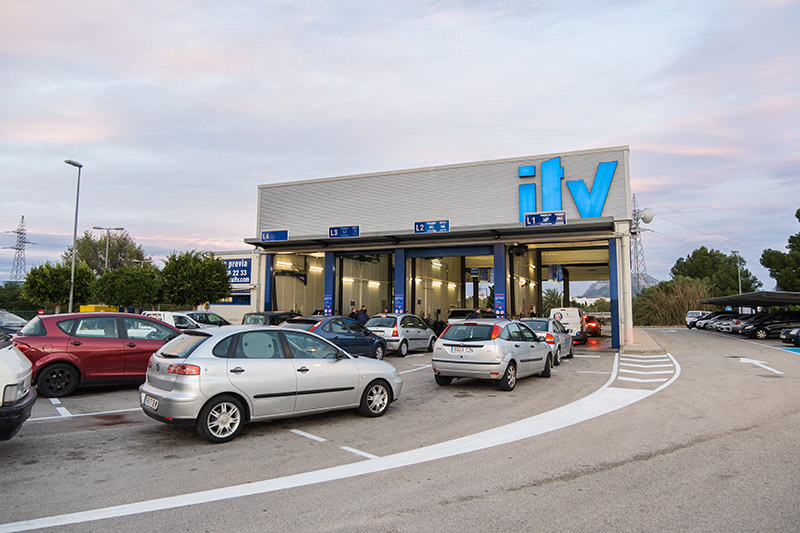I usually talk about healthcare in my blog. But on this occasion I would like to reflect on the private management of other public services and what has happened in the Valencian Community, specifically with regard to the problems generated by the end of the concessions of the Technical Vehicle Inspections (ITV). Because, although it may not seem so at first, the political decision to nationalize (which is what has been done) this public service has generated conflicts and complications for citizens, similar to those produced by the end of the health concessions. Here are my reflections.
In the Valencian Community, as in almost all regions of Spain, there are (or were until now) a number of public services managed by private companies, such as ITVs, nursing homes or sports facilities, to give several examples. Some of them continue to operate under this concession model for a certain period of time, and periodically public tenders are called, where the requirements for the provision of the service are updated, but maintaining the model. In the case of the ITVs, this was a privately managed public service that has operated for 25 years in the Valencian Community and that became directly managed by the Generalitat Valenciana in February 2023. A year and a half ago. Until that time, citizens were, in general, happy with the service. In fact, in my opinion, most of them did not know that the management was private. The concessionary companies had to invest by contract in equipment, modernization processes and technology, which made it possible to enable online appointment systems many years ago, for example, and considerably reduce waits on the day of the inspection or the times to get an appointment.
However, the government of the wrongly called progress in the Valencian Community undertook in 2015 and until 2022 a crusade against the model of collaboration with the private sector in general, among others the ITVs or the sanitary ones. In the case of the ITVs, they came up with the idea of creating a public company, integrating all the existing private entities in the Community, regardless of the operating conditions, salaries, etc. It has not been exactly the same as the process of the health reversions, where there is no public company. But the consequences are similar just a year and a half later: disaster, chaos, waiting lists, thousands of cars without passing the inspection and a «submerged or parallel economy», such as the black market of appointments or the undercover business of paid chauffeurs to pass the inspection, as we have read these days in the media.
In healthcare, you are not fined for not having an appointment for a check-up or consultation, but the risk to your own life or the worsening of the disease is a much worse consequence. And the problems of access to the health system that the citizens of the reverted areas are suffering is much more serious than driving a car in good condition without having managed to pass the review, however dangerous driving without the guarantee of the ITV.
And unfortunately there are many other similarities. Drivers are going to other regions of Spain to have their vehicles serviced, because the ITV is a mandatory requirement for driving. The same happens in the health area of Torrevieja where there are many citizens who go to hospitals in Murcia to receive the attention of specialists that they no longer have since the reversion or get an appointment much earlier than in their reference hospital. In La Ribera they do not go to another region, but they have resigned themselves to return to hospitals in Valencia or go to private health care because of the problems generated after the reversion.
In addition, waits of 16 hours or more to pass the ITV without an appointment are unfortunately reminiscent of the inhuman waits in the ER, which have been denounced by citizens, professionals and even trade unions. Because let’s not forget that those vehicles that pass the ITV also have owners who are elderly people, who cannot or should not spend those hours waiting; and fathers and mothers of families with jobs and obligations that they cannot avoid, and so many other particular cases affected by this worsening of the service.
And all because of a sectarian political decision in defense of a misunderstood public management of a public service, which ceases to be useful to citizens when it conditions their freedom and time, and harms their daily lives, in addition to the seriousness it implies for traffic safety, in the case of the ITVs, and health, in the case of Health. Politicians should solve problems, not cause them.
Private management of public services has proven to be effective and efficient, agile, responsive, technologically updated and, above all, committed to citizens. The administration has and must control the results of this management and establish and renew the conditions for the provision of these services, according to the needs posed by society at all times. But dispensing with this collaboration with companies for the management of public services is a serious mistake that the citizens end up paying for. We have seen it in Health and now also in the case of the ITVs.
Let us hope that, with the new vision on the management of public services of the current Valencian Government, things will change and the spirit of dialogue and to facilitate the life of citizens, not to harm them, will be prioritized. And together, we will find a solution to the problems created by the previous administration.

